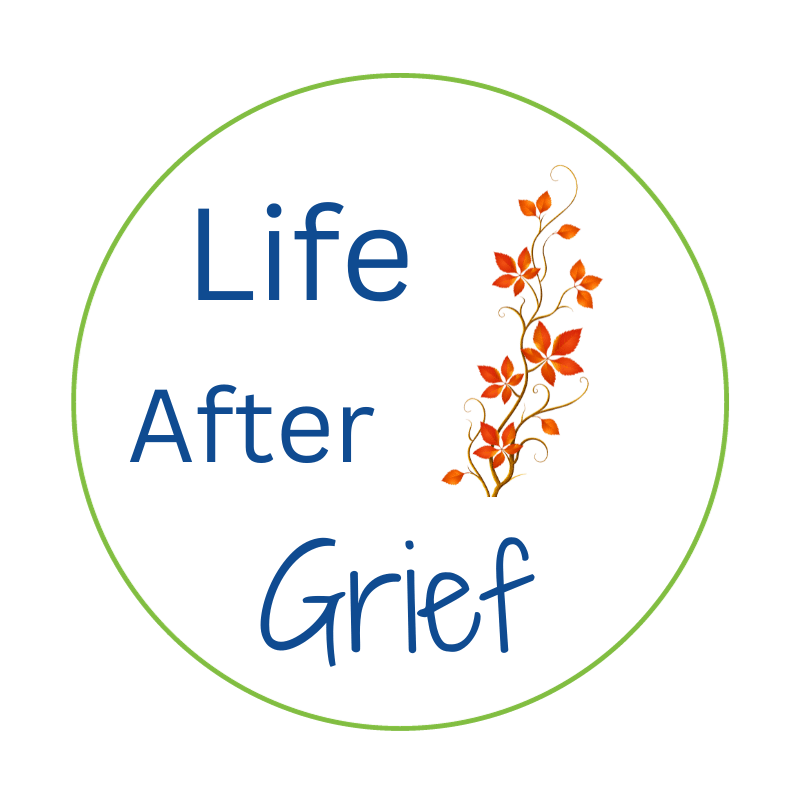
Hi,
How many hugs is too many? There is no limit. More is better.
However, in a world where we are more socially isolated than ever before, relying on technology for connection, it’s hard to get the physical connection we all need to be truly healthy.
According to common knowledge, we need approximately:
4 hugs a day for survival
8 hugs a day for maintenance
12 hugs a day for growth
By this standard, especially for people without a significant other, children or pets, many of us are starved for touch. For a person who is grieving, it’s even worse. Family and friends are often scared to touch because it might provoke a recoil or even tears.
I remember being jealous of my widow friends with children, even though their lives were more complicated than mine. I couldn’t imagine taking care of anyone else those days when I could barely get out of bed but still longed for what they had, small, loving arms around my neck.
Once, I was alone in my apartment after my husband, David, died, surrounded by memories, his presence thick around me and I couldn’t bear it. I went down to talk to the doorman and wound up sharing this pain of seldom being touched.
He said, “Would you like a hug?”
“Yes, oh YES,” I answered and the moment he hugged me, I was OK again.
The Health Benefits of Cuddling
According to the WebMD article, “The Health Benefits of Cuddling,” https://www.webmd.com/balance/ss/slideshow-health-benefits-cuddling, there are 8 benefits and 2 questions you may not have considered:
eases stress
helps heart
relieves pain
fights colds
connects you to your partner
helps you sleep
helps you bond with a newborn
is good for a baby’s health
hug your dog?
hug your phone?
Bottom line, a welcome hug releases the hormone, oxytocin, which lowers blood pressure and makes us feel good. It also lowers cortisol, the “stress hormone,” which raises stress levels.
The fact of the matter is that stressful situations and toxic people are unavoidable. We cannot control challenging, even heartbreaking, life events like the death of a spouse, child, pet or other loved one, losing a job or home you love, going through a divorce or breakup, or feeling abandoned by a friend or family member.
All you can do, in the face of tough external experiences, is to take good care of you, buffer yourself from stress and respond as calmly as possible. High stress reactions, like lashing out at work, can have negative future consequences. A hug, if it’s possible, can help take the temperature down.
Usually, we know when we are going into uncomfortable situations. Is there a way that you can do something to feel good beforehand like walk in nature, listen to music, ask for a hug, pet a cat or dog, or exercise? Anything that connects you to yourself, embodied, works. It’s different for everyone.
What can you do that slows down distressing or painful thoughts and brings you back into your body?
Why Hugs Are Essential and Can Be Tricky
Why don’t we ask for hugs when we need them?
There are a number of reasons we don’t ask for a hug until we are literally touch-starved and desperate. Here are several reasons why:
It’s a vulnerable act to ask for human touch, especially from someone who is not an intimate partner
We like to pretend we can go it alone, and believe that asking for a hug will create an obligation or imbalance
We think family, friends and colleagues who care about us should just know what we need, without our having to tell them
Touch can unleash emotions and it’s embarrassing to cry in public
Sometimes we need a hug but are reluctant to be touched because it’s the wrong time or from the wrong person (permission matters)
When I started dating after my husband, David, died, my mind knew he was gone but my heart and body didn’t. The only touch, the only hug I wanted was his, unreasonable as that sounds.
This made it really tough as I began to desire hugs and kisses from a new man, Wayne, whom I was starting to love. Yet, I backed away from him when he put an arm around my waist because it felt wrong. I felt guilty and ashamed, as if my wanting intimate touch again, betrayed my husband.
My visceral reaction caused hurt feelings between us. Without clear communication from me about why this was happening every time it did, the misunderstandings’ divide would have grown and split us up. For over six months, my attraction/revulsion response to Wayne’s touch was confusing for us both. We are together today because Wayne was patient with me and we both committed to pushing through the growing pains of our relationship.
Why are people reluctant to offer a hug to someone who is grieving?
Mostly, people don’t offer a hug because they are afraid of overstepping unspoken boundaries or hurting the person who is grieving without meaning to. Not knowing what to say or do, they do nothing or are awkward being around us.
Hugs can bring on tears and people can be uncomfortable with tears
Unasked, most people won’t take the vulnerable risk of offering a hug and having the offer rejected
For a grieving woman, a hug from the wrong person can create a stress response that it’s a precursor to a push for more intimate touch
There are no clear guidelines about how to talk about this stuff
Most people don’t understand what touch-starved means, and that it’s much worse when you are grieving
How You, Animals and Tech Can Help
What can you do for those times when nobody is around to give you the hug you need and want?
It’s important to reconnect with your body and cherish yourself, as best you can. Go slow and take time to feel whatever emotions are there. Tears are just tears. It’s better to let them out than stuff them down, if you can.
You can hug yourself or do some other loving act.
Remember that touch is a loving act. You can offer yourself a hug, just wrap your arms around your torso and hold onto yourself. Breathe into your hug and stay there until you settle into your body.
Anything textural that involves the senses works, such as:
Take a shower and put on moisturizer
Walk in nature and hug a tree
Listen to music and dance
Eat something delicious in a ritual way
Apply essential oils and light a candle
My husband left me his now 100-year-old mom to care for and her skin gets as dry as a lizard’s. Her nails grow crazy fast and, when her skin gets scaly, she scratches her skin and hurts herself. Hydrating and moisturizer helps but she is reluctant to ask anyone for self-care, like help moisturizing her legs, which she can’t reach, until there’s a ‘problem’. Otherwise, she fears being obligated to me when she can’t pay me back. Asking for help with something that’s hard for her to do alone, just so she will feel good, seems unreasonable to her. For me, being allowed to express my love in this odd way is a gift.
Animals can offer loving connection and textural touch (fur to pet)
If you have animals, you already know that they are sensitive to your feelings. It’s common for dogs to attempt to comfort their people when they are distressed, putting a nose under a hand or curling close. They can provide a distraction, asking for a walk or food to eat.
They might be integral to memories of being with the person you loved who is gone, bittersweet. Their presence might comfort you and also bring tears.
Above all, the animals who love you offer unconditional love. This allows someone who is grieving to just ‘be,’ whatever that means in the moment.
Our love/hate relationship to tech and how it connects and divides us
During the pandemic, our weekly family zoom calls gave us a chance to see each other and catch up on news. I attended more than one memorial service when people could not get together in person
Tech became a way to keep communities together, allow for global participation and facilitate self-expression. I started an online open mic to give our Monday Singers Space group a place to sing and shared poetry online with Sleepy Hollow and Paris writing groups
Movement, dance, exercise, meditation and breath classes began, along with other group events like games and movie nights
*****
If there are topics you want me to cover in future Life After Grief newsletters, please respond and let me know.
This newsletter issue, 8 Reasons We All Need More Hugs describes why hugs are mandatory, not optional, and shows how we suffer without connection. If you want to find out how I can support you, let’s chat.
Schedule a zoom call to find out how to heal relationships, which may have been disrupted by grief, at https://thebadwidow.com/ConnectWithAlison.

